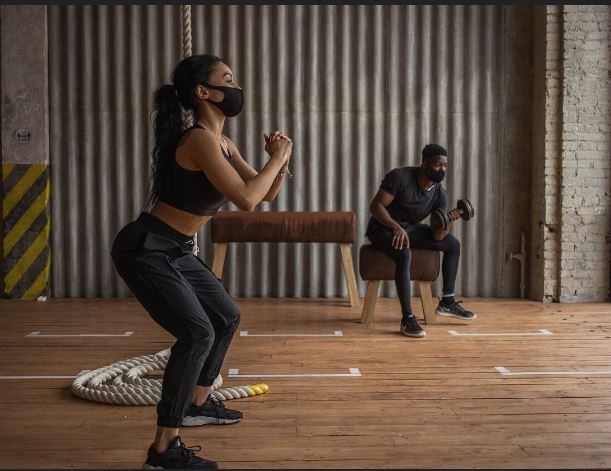Benchmarks to Assess Recovery Milestones in Fitness Events
Pushing yourself to your limits during a fitness event is exhilarating, but neglecting proper recovery can lead to setbacks or injuries. The key to bouncing back efficiently lies in establishing benchmarks to assess recovery milestones. These benchmarks act as personalized gauges that help you determine how well your body is recovering and when you’re ready to resume training at full intensity.

Choosing the Right Benchmarks:
The most effective benchmarks for recovery milestones are specific, measurable, achievable, relevant, and time-bound (SMART). Here are some examples:
Physical Performance:
Muscle soreness: Track your level of muscle soreness using a subjective scale (1-10) or objective methods like range of motion assessments. Aim for a gradual decrease in soreness over time.
Strength: Monitor your performance in key lifts or exercises associated with your event. Look for a gradual return to pre-event strength levels.
Cardiovascular Endurance: Track your heart rate variability (HRV) or resting heart rate (RHR). Improved HRV and a decrease in RHR indicate better recovery and readiness for increased training intensity.
Sleep Quality: Track the duration and quality of your sleep using a sleep tracker or app. Aim for 7-8 hours of quality sleep for optimal recovery.
Mental Acuity: Monitor your focus, concentration, and energy levels throughout the day. Feeling refreshed and mentally sharp indicates good recovery.
Pain Levels: Any lingering pain from the event should gradually diminish. Pay attention to any sharp or persistent pain, which might require consulting a healthcare professional.
Setting Realistic Timelines:
Recovery timelines vary depending on the intensity and duration of the event, your overall fitness level, and training experience. However, some general guidelines can help you set realistic expectations:
Mild Events: For shorter, less demanding events, aim for a recovery period of 1-3 days before returning to light training and 5-7 days before full intensity workouts.
Moderate Events: For events pushing you moderately, expect a recovery period of 3-5 days for light training and 7-10 days for full intensity workouts.
Strenuous Events: For highly demanding events, recovery might take 7-10 days for light training and 10-14 days for full intensity workouts.
Remember, these are just general guidelines. Utilize your chosen benchmarks to gauge your personal recovery progress and adjust your timeline accordingly.
The Importance of Listening to Your Body:
While benchmarks offer valuable insights, it’s crucial to listen to your body. Even if your benchmarks suggest you’re recovered, lingering fatigue, pain, or stiffness might indicate the need for further rest or modified training. Don’t push yourself too hard, too soon, risking setbacks and jeopardizing your long-term fitness goals.
The Importance of Listening to Your Body:
While benchmarks offer valuable insights, it’s crucial to listen to your body. Even if your benchmarks suggest you’re recovered, lingering fatigue, pain, or stiffness might indicate the need for further rest or modified training. Don’t push yourself too hard, too soon, risking setbacks and jeopardizing your long-term fitness goals.
Beyond Benchmarks: A Holistic Approach to Recovery
Remember, recovery is a multi-faceted process. While benchmarks provide valuable data points, consider incorporating other recovery strategies like proper nutrition, hydration, stress management techniques, and self-massage to further optimize your body’s healing process. By embracing a holistic approach to recovery, you can ensure a smoother and more efficient return to peak performance after your next fitness challenge.
Conclusion:
By establishing SMART benchmarks and remaining attuned to your body’s signals, you can effectively assess your recovery milestones after a fitness event. This personalized approach promotes a quicker return to peak performance while minimizing the risk of overtraining and injury. Remember, recovery is just as important as training – prioritize it, and you’ll be back on track to conquering your next fitness challenge in no time!




đăng ký 66b
Chơi slots nhận thưởng chỉ với 3 biểu tượng trở lên. 3D slots, video slots, megaway slots, jackpot lũy tiến,… tất cả các dòng game quay hũ kinh điển nhất hiện nay đều có tại đăng ký 66b . Chúng tôi mang đến cho hội viên hơn 1.000+ vòng quay miễn phí với mức RTP cực cao. TONY12-11A
herpafend official
**herpafend official**
Herpafend is a natural wellness formula developed for individuals experiencing symptoms related to the herpes simplex virus. It is designed to help reduce the intensity and frequency of flare-ups while supporting the bodys immune defenses.
creación de cuenta en Binance
Can you be more specific about the content of your article? After reading it, I still have some doubts. Hope you can help me.
binance
Can you be more specific about the content of your article? After reading it, I still have some doubts. Hope you can help me.